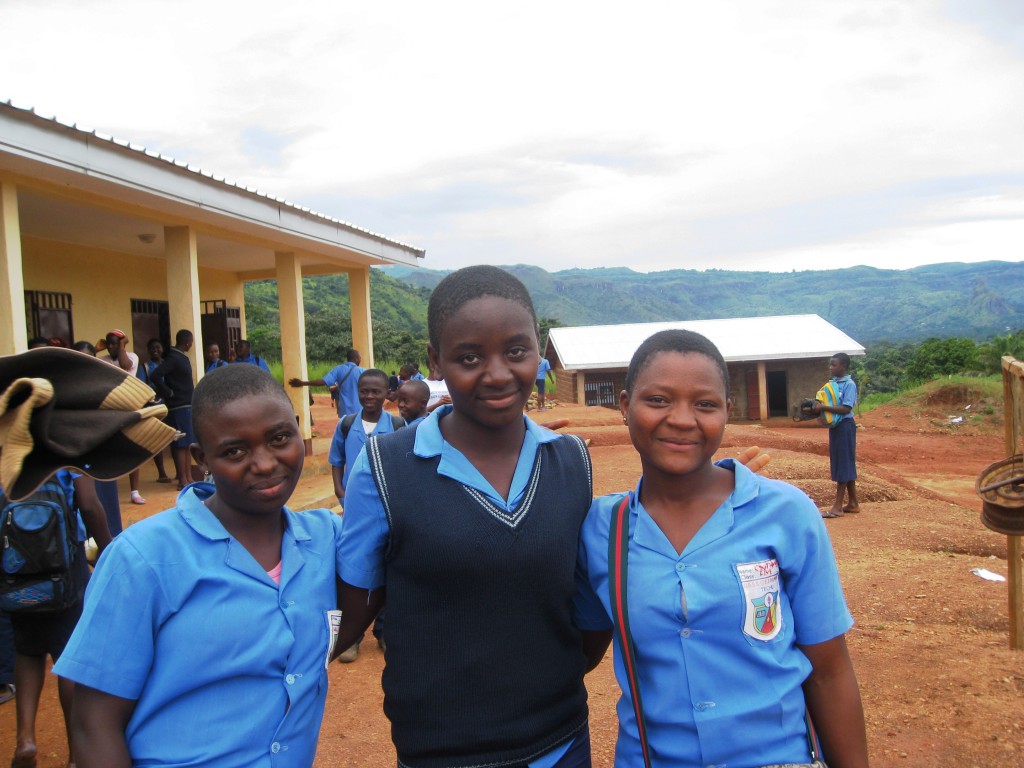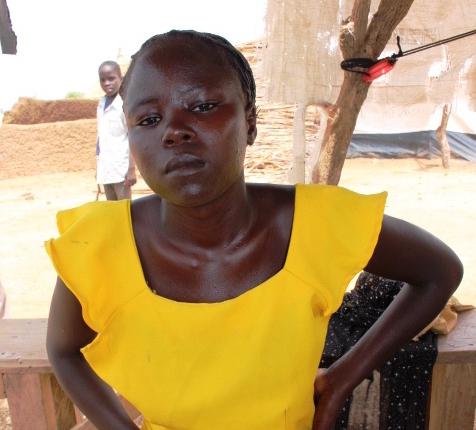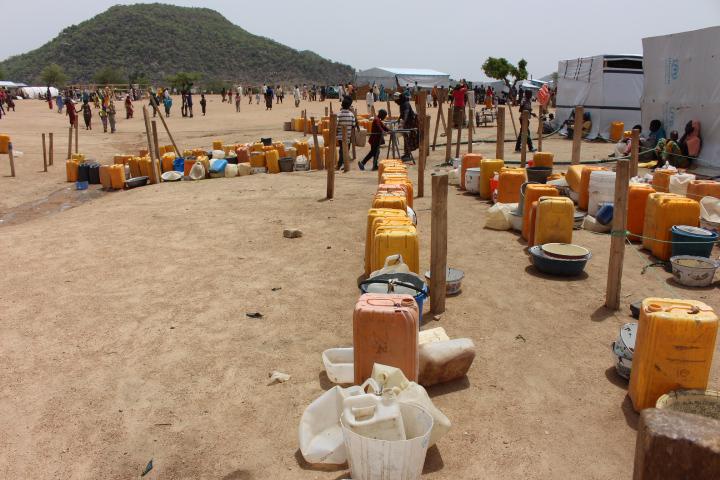
Girls Excel, W4’s partner in Cameroon, provides girls with health education and access to menstrual hygiene
For me, growing up as a young woman in Cameroon, menstruation has always been a taboo topic. People here dread talking about it directly and use strange expressions when they do allude to it. For instance, you hear women say ‘Aunty Lily is in Town,’ or they refer to ‘mbra’ (which may be to do with the moon) or ‘blockcake’ (whose meaning is thoroughly obscure even to people like me, who grew up hearing and speaking the euphemism!). Meanwhile, Cameroonian men hardly ever talk about menstruation, except as a way of saying they have no money. It can be bewildering if you are visiting Cameroon for the first time and a man tells you, ‘I di see ma menses’ (I am on my period). The man is of course not actually having his period; he is saying that he is penniless.
Of all the unlikely expressions used to refer to this vital aspect of girls’ and women’s reproductive health, one of my favorites is ‘walking the red carpet’. I love the idea of walking down a red carpet; it strikes me as a dignified act. But this metaphor really raises the issue of the incredible lack of dignity that so many girls and women suffer during menstruation. Think about it: how does it feel to ‘walk the red carpet’ in an emergency situation? How do girls and women cope during conflicts and disasters? Can you imagine having to endure five days of non-stop bleeding without any water or sanitary towels to keep you clean and dry? For some of us, these are unthinkable conditions, or just things we might come across on TV or in books, but for many, many adolescent girls and young women around the world, ‘walking the red carpet’ under emergency conditions is a never-ending monthly reality.
Twenty-three year old Mero came to Cameroon seven months ago from Atagara, Nigeria. Mero and her mother barely made it out of their country alive after Boko Haram attacked her village and burned down their homes. At the end of a nerve-wracking three-week journey, Mero and her mother finally reached the Minawao refugee camp in the Far North region of Cameroon, and were settled there by the UN Refugee Agency (UNHCR). Thanks to the support of different humanitarian organizations active in the Minawao camp, the refugees there have access to water, latrines and other sanitary infrastructures. However, countless girls like Mero have monthly needs, which go unheeded.

Mero, at the Minawao refugee camp in Cameroon
According to Mero, her traumatic experience as a refugee fleeing Boko Haram has been aggravated by the lack of access to menstrual hygiene services in the camp:
‘I have really suffered and I do not think that I will ever forget the killings, destruction and loss that I have experienced. I am grateful that I am alive, but every new day comes with different challenges such as insufficient food, water, clothing and shelter. What girls like me really need are good latrines with privacy for menstruating women, sufficient water supply and clean sanitary towels. Often, I lack sanitary towels to use and even when I succeed in getting some, I can only use them for a short time. After that I start waiting again for someone to come and give me more. It is a difficult and embarrassing situation to know that you have to ask for help every month to take care of yourself. But asking is better than the smell and shame of being soaked by your period.’
Mero is, of course, not alone in her struggle. Vulnerability, discomfort and shame during menstruation: this is a reality faced by girls and women in many rural communities in Cameroon, including those not afflicted by conflict. Parents and teachers are often too scared to even discuss menstruation or sexual health, fearing that it will take away the innocence of girls. But, on the contrary, such discussions could provide teenage girls with accurate information about their bodies, help them to understand the changes they are going through, and reassure them that they have adult support when they need it.

Water is scarce at Minawao refugee camp, northern Cameroon
It is about time that we realize that the secrecy and taboo surrounding menstruation are adversely affecting the lives of many girls and women around the world. Teenage girls are afraid to talk about what their bodies are going through and to mention their sanitary needs in spite of these issues being critical to their health and development. We need to spark a new and open debate about the overall health status of refugees and rural girls, and we need to demystify puberty and menstruation, to dispel the harmful myths and misconceptions surrounding them.
Girls whose sexual and reproductive health needs go unaddressed are not only left to cope alone and in secret, suffering through their bodies’ natural processes as a curse and a source of shame, but are also exposed to special and sometimes tragic dangers. Many young, uninformed girls are subject to early and unwanted sexual intercourse, pregnancy and sexually transmitted diseases — either because they are ignorant about their bodies or because they feel they have no choice but to offer sex in exchange for basic life supplies. Others miss many crucial days of education during their periods because they are too embarrassed to go to school or are bullied by their peers if they leave their homes during menstruation. This unrelenting system of shaming women and girls while neglecting their needs naturally undermines girls’ and women’s confidence.
Both humanitarian and development agencies need to take into consideration the specific needs of girls, providing them with decent and sustainable menstrual hygiene services, particularly sanitary towels, and offering mentorship and awareness programs to boost their confidence and keep them in school. We need to have decent, respectful and helpful conversations with girls and young women about their bodies, sexual health and rights. We need to create an enabling environment in which adolescent girls can “walk the red carpet” comfortably and hygienically, with pride and dignity. Let’s break the chains of these taboos and discuss sexual and reproductive health with adolescent girls. Because menstrual education matters. PERIOD!
Find out more about W4’s project in Cameroon that produces and distributes washable, reusable sanitary pads to support girls and women in both rural communities and refugee camps.













